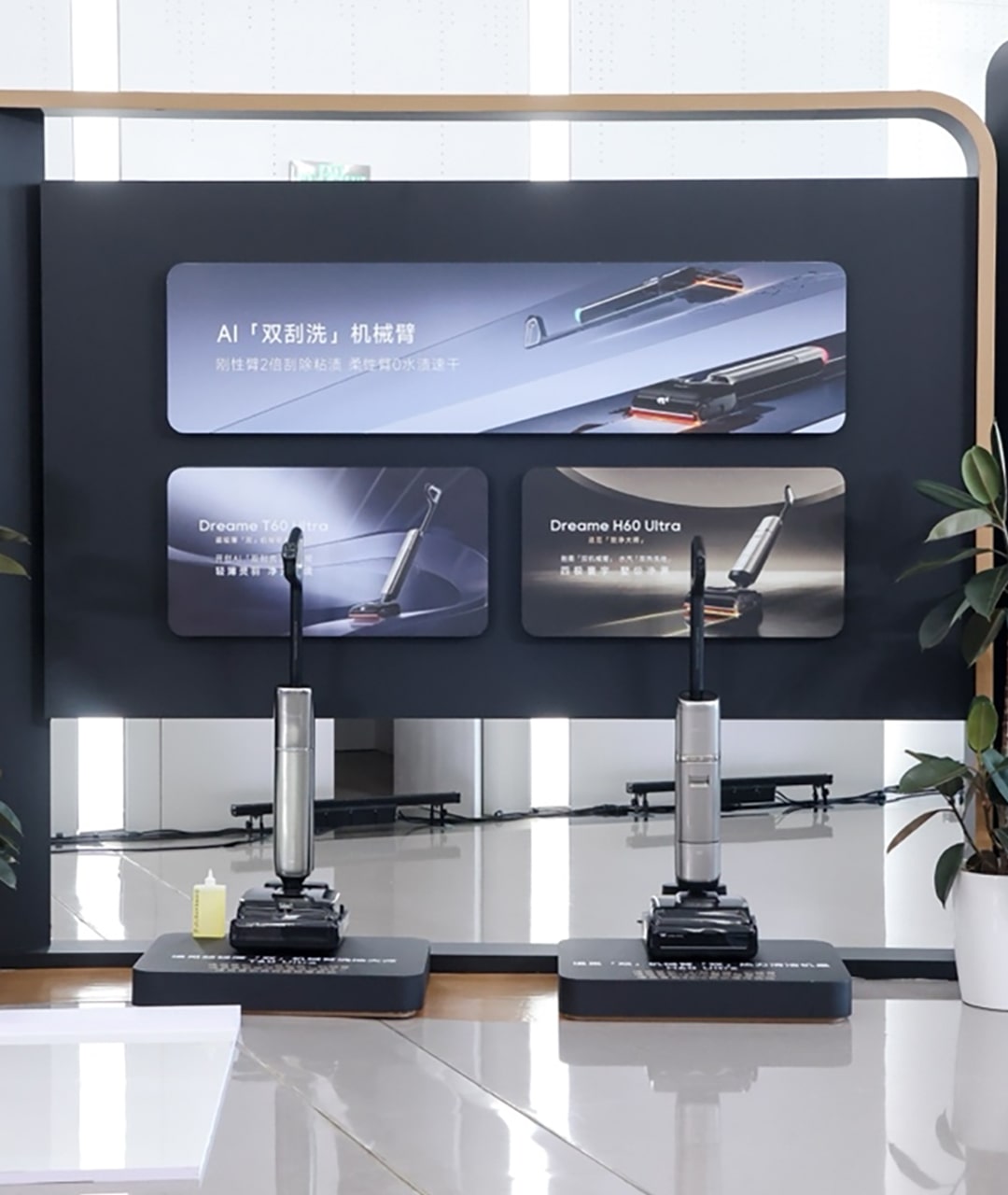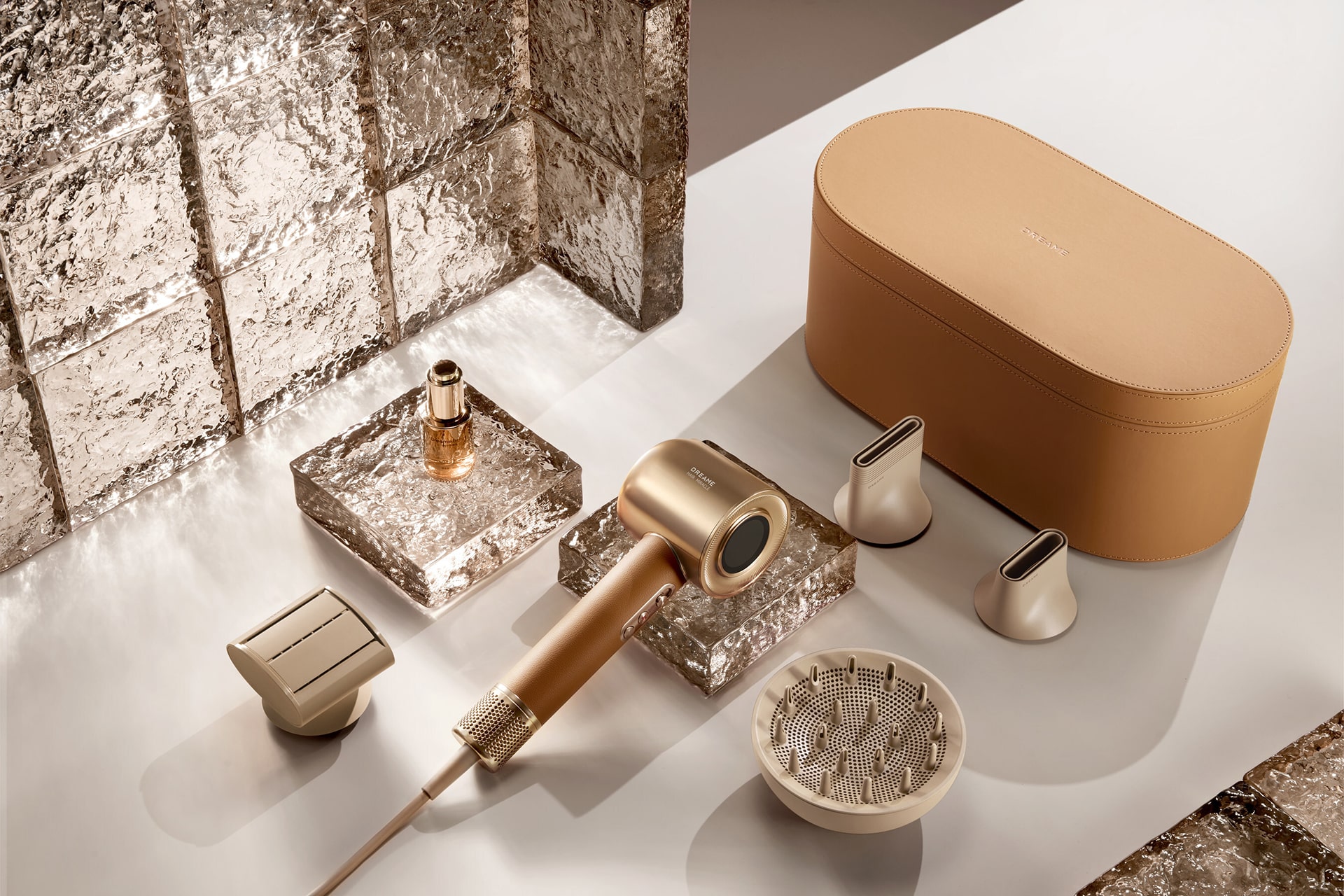When competition over specifications in home appliances reaches a bottleneck, artificial intelligence may be the factor that breaks the deadlock while making products more user-friendly.
At its latest launch event, Dreame introduced more than 30 new products, with two floor washers drawing the most attention. Each features a pair of robotic arms that can self-clean edges and scrub floors as users push the machine.
“In recent years, the floor washer segment has focused too much on pushing parameters to the extreme, but that doesn’t necessarily solve users’ real pain points, such as stubborn stains or cleaning low spaces,” said Wang Hongpin, head of product and R&D for Dreame’s floor washer division in China.
Increasing suction power does not always improve cleaning results. Higher power can also create more noise and shorten battery life. By contrast, AI introduces new functionality through environmental sensing, user intent recognition, and action decision-making, enabling floor washers to address problems that were previously unresolved.
This may represent a stepping stone. Before humanoid robots enter households, AI-enabled appliances with basic embodied intelligence are already easing housework.
The concept extends beyond floor washers. Dreame’s new lineup now includes refrigerators, air conditioners, and televisions, signaling its ambition to expand beyond cleaning devices and position itself as a full-fledged home appliance company.
From large appliances such as refrigerators to smaller items like hair dryers and smart rings, AI integration is a recurring theme. Dreame also disclosed for the first time that it plans to launch its own smart glasses and is exploring companion robots.
Pan Zhidong, head of Dreame’s AI smart hardware division, said in an interview that the company intends to use smart rings and glasses as entry points to connect all its products. According to his vision, Dreame’s smart home ecosystem will expand outward from cleaning appliances to automotive applications, with AI-driven hardware serving more aspects of daily life.
What’s on Dreame’s slate?
The clearest examples of Dreame’s AI integration are the two new floor washers with robotic arms.
The T60 Ultra and H60 Ultra each feature two robotic arms designed for scrubbing. The front arm uses a flexible scraper to clear watermarks and dirt along edges, while the rear arm applies pressure to tackle stubborn stains.
As users push the washer forward, the AI-controlled arms perform in tandem. One acts more softly than the other, like a pair of helping hands. This directly addresses pain points that traditional floor washers have long left unresolved.
In recent years, the industry has been locked in a race to maximize specifications—stronger suction, higher water output, more powerful motors. Yet these boosts have had limited effect on edge cleaning and narrow gaps.
To address this, the T60 and H60 incorporate embodied intelligence. Under AI control, the robotic arms can sense the environment and make real-time decisions. The washers detect floor dirt levels through high-precision sensors and magnetic rings. Once stains are identified, AI adjusts suction and water output. If stains prove difficult to remove, the machine alerts users with lights and sounds, suggesting manual use of steam or hot water modes.
Acting as the “brain,” the AI system orchestrates the machine’s actions, controlling arm movements based on whether the device is advancing or reversing.

“The floor washer market is in a fiercely competitive state, with each player choosing its own angle. Dreame hopes to solve user pain points more effectively through embodied intelligence,” Wang said. He added that the goal is to give machines more efficient and thorough cleaning capabilities, while also making them flexible enough to reach under furniture and scrub tough stains.
The AI-first approach extends to other Dreame products. Its new hair dryer can detect its distance from hair and automatically adjust airflow and temperature. The company’s latest refrigerator uses built-in models to monitor and regulate oxygen levels, while also sterilizing compartments to preserve freshness.

Another highlight is Dreame’s smart ring, which serves as a control point for smart home devices and tracks health metrics. It is designed to connect with Dreame’s upcoming car and other outdoor devices as well.
Underlying these products is a consistent logic: as traditional hardware upgrades in home appliances yield diminishing returns, AI can create new space for innovation.
Disrupting a crowded market
According to All View Cloud (AVC), the market for cleaning appliances such as floor washers and robot vacuums has been expanding rapidly. Cumulative sales reached RMB 22.4 billion (USD 3.1 billion), up 30% year-on-year (YoY), with unit sales of 16.55 million, an increase of 22.1%.
Growing sales have attracted more entrants. On August 6, 2025, DJI released its Romo robot vacuum, marking its crossover into smart home cleaning and further intensifying competition.
Yet profit growth has not kept pace with sales. In 2024, Ecovacs Robotics reported net profit of RMB 806 million (USD 112.8 million), less than half its 2021 peak. Roborock’s 2024 revenue rose 38% YoY, but its net profit slipped 3.6%. Both companies attributed pressure on earnings to price wars and heightened competition.
Some in the industry see AI as a potential way out of this cycle. Earlier this year, Roborock introduced what it described as the world’s first mass-produced bionic hand vacuum cleaner, which can sweep floors while also picking up small items. AI enables the device to recognize objects and calculate the best way to grasp them, improving collection accuracy.
Dreame’s floor washers follow a similar principle, identifying stains with AI and adapting cleaning modes on the fly.
Whether it is a vacuum that automatically lends a hand when it senses dirt or a hair dryer that adjusts heat based on hair condition, today’s AI appliances are not trying to mimic humanoid robots. Instead, they apply embodied intelligence in targeted ways to solve specific household tasks.
This could mark a transitional stage for embodied intelligence, offering a practical route for deployment in everyday life.
Wang believes advances in smart technology will expand opportunities for floor washers. “With embodied intelligence and robotic arms, floor washers now have eyes, a brain, and hands. In the future, consumers may only need to push the machine casually around their homes, while it autonomously adjusts to different scenarios and completes the job,” he said.
Beyond its latest launches, Dreame plans to release smart glasses in the first quarter of 2026, along with companion robots, though details have not yet been confirmed.
KrASIA Connection features translated and adapted content that was originally published by 36Kr. This article was written by Fu Chong for 36Kr.
